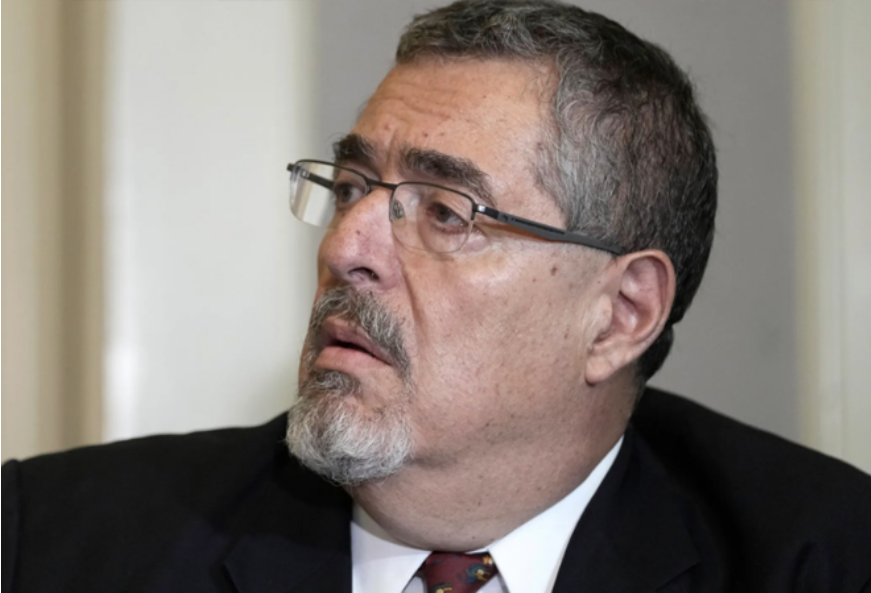
The victory of an anti-establishment, anti-corruption, political outsider in Guatemala has renewed hopes for democracy in Guatemala and the larger Latin American region. A candidate like Guatemala’s Bernardo Arévalo would be a breath of fresh air in any country—a scholar-diplomat with a PhD in political sociology and a background in peacebuilding, and a former ambassador and United Nations official with an equal amount of domestic and international government experience. Such candidates rarely join politics.
Arévalo’s victory shows that Guatemala’s democracy is nimble enough to allow a complete outsider to enter politics, compete in free and fair elections, and beat a well-entrenched party that has been around for more than two decades. This is rare in today’s world, where two parties or blocs often dominate elections, including in India, Germany, the United States, Japan, the United Kingdom, and Canada. Arévalo managed to convincingly beat Sandra Torres, a former first lady with heaps of funding and legal firepower at her disposal.
Arévalo managed to convincingly beat Sandra Torres, a former first lady with heaps of funding and legal firepower at her disposal.
This is not to say that Guatemala’s democracy is perfect. Like all democracies, Guatemala has its flaws. Political elites remain entrenched and are likely to stall Arévalo’s reforms. The threat of violence may also rear its ugly head. Yet, this is a seminal moment for Guatemalans, who have fought hard to maintain their democracy despite numerous setbacks related to corruption and misgovernance. Much of Arévalo’s victory is owed to Guatemalan civil society, who know that strengthening democracy will prove to be a daily task.
Another country in Latin America also went to the polls on the same day as Guatemala—Ecuador. Unfortunately, Ecuador’s elections were preceded by a tense and violent atmosphere, culminating in the assassination of presidential candidate Fernando Villavicencio, a former journalist and anti-corruption crusader. Still, voters turned up in large numbers, registering an 82 percent turnout. In Ecuador too, the second round of voting on 15 October will be between an establishment candidate, Luisa González, and an outsider candidate in 35-year-old Daniel Noboa. At the moment, it is unclear whether Ecuador’s democratic reality would follow the same path of Guatemala’s, where free and fair elections lead to a peaceful, democratic transition.
Trends in democratic elections in Latin America
The elections in Guatemala and Ecuador are reminiscent of three overarching trends in democracies across the Latin American region.
The first is anti-incumbency. Arévalo’s win is the 15th consecutive time that an incumbent presidential candidate or party has been trounced in the polls in Latin America. Incumbent presidents and parties in Latin America rarely ever return to power. Peruvians have elected five different presidents in each election since 2001. In Colombia and Mexico, a leftist party has come to power for the first time in the country’s history in the previously held election. This trend may prove to be beneficial for voters, who have copious candidates and parties to choose from, and the ability to punish incumbents when they underperform or engage in corruption. For politicians, it is an unforgiving battlefield, where corrupt former presidents are often prosecuted, jailed, and in the case of Peru’s Alan Garcia, even end in suicide.
Arévalo’s victory may soon be followed by other outsider candidates, including Noboa in Ecuador and Javier Milei in Argentina.
The second trend is that of the ‘outsider,’ a candidate with little to no prior political experience who manages to craft a convincing campaign and beat established candidates and parties. Arévalo may be the most recent outsider to win in the region, but he follows a long list of such candidates who first began making waves in the 1990s. The region has seen 21 ‘outsider’ candidates who have either been elected to the country’s highest office or finished in second place in elections between 1990 and 2016. Arévalo’s victory may soon be followed by other outsider candidates, including Noboa in Ecuador and Javier Milei in Argentina. That Latin America provides fertile ground for outsiders is a positive sign for democracy; it drastically reduces the power of the political elite, allows space for newcomers and anti-establishment candidates who can bring about some change. Yet, sometimes, the ‘outsider’ can also prove to be a dangerous phenomenon, as was the case with Venezuela’s Hugo Chávez and Peru’s Alberto Fujimori, who proved more dictatorial than democratic once voted into power.
The last trend is that of millennial politicians. The region currently has two millennial presidents (i.e., those born between 1981 and 1996) in Chile’s Gabriel Boric and El Salvador’s Nayib Bukele. Boric and Bukele are far more representative of their young populations than their predecessors and were able to win over the electorate through modern methods, like Twitter and Twitch instead of traditional media coverage on television. This trend is likely to continue in this age of information and technology, where millennials find novel ways of reaching out to voters without the need for lavish funding and political connections.
The verdict is still out on whether these trends turn out to be a net positive or negative for the region, but there is no doubt that Latin America provides fertile ground for the study of democracy. More importantly, Latin America is increasingly proving that the old notions of ‘left’ and ‘right’ are no longer the principal themes in electoral democracy, it is far more about anti-incumbency, governance, corruption, and contemporary issues like employment and violence, than it is about political ideology.
Hari Seshasayee is a Visiting Fellow at ORF and is an advisor to the Foreign Ministry of Panama, and an Asia-Latin America Expert at the United Nations Development Programme.
The views expressed above belong to the author(s). ORF research and analyses now available on Telegram! Click here to access our curated content — blogs, longforms and interviews.




 PREV
PREV


